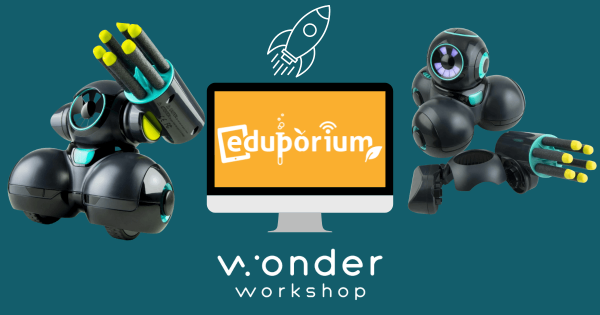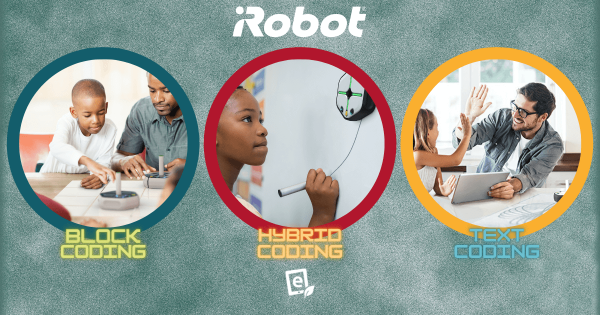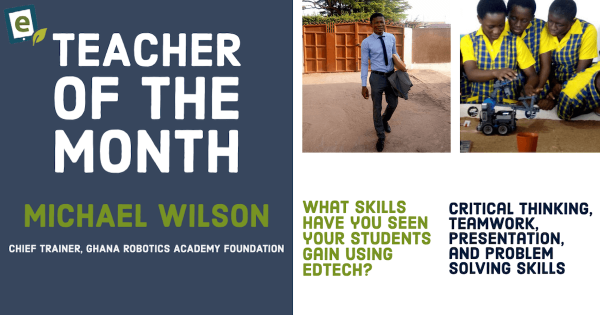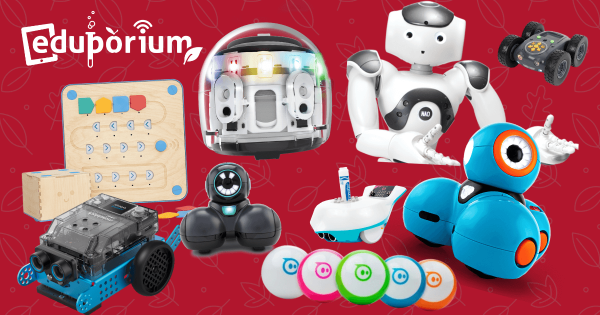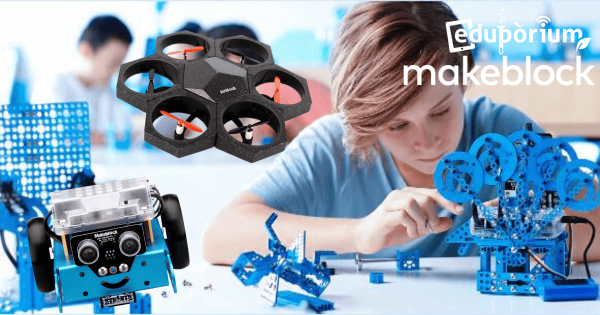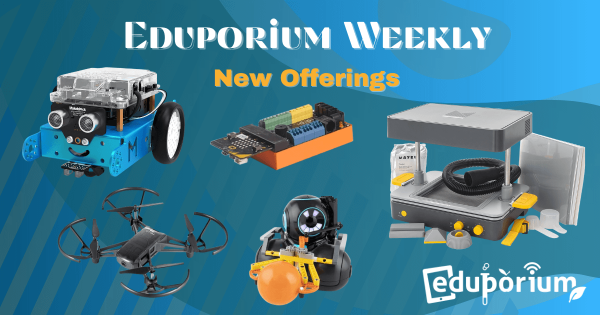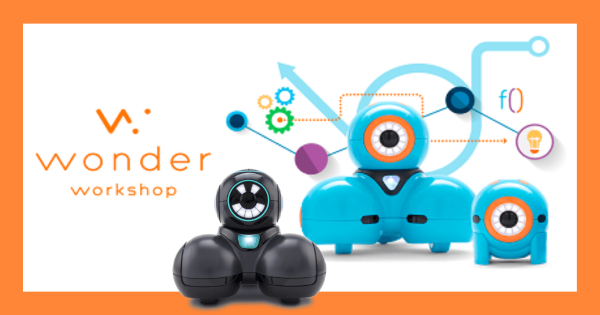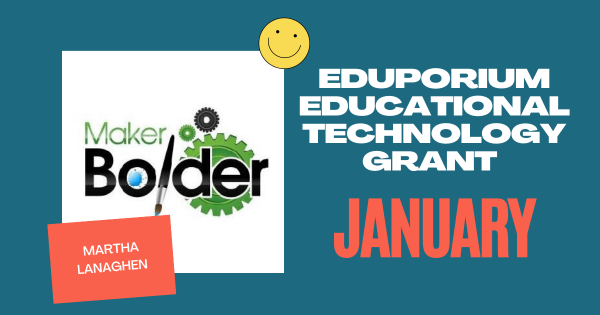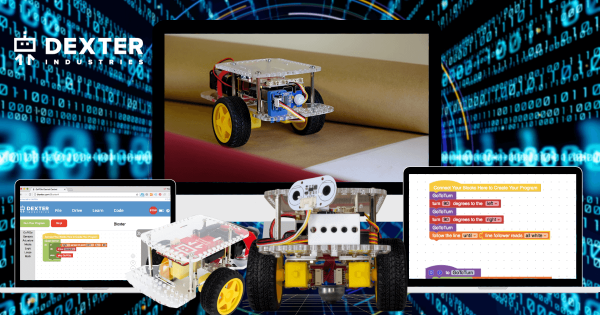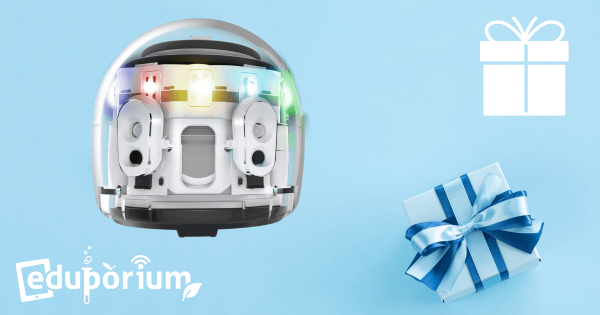It’s designed exclusively for use with the Cue and allows students to try something new while coding. Now, they can create typed code that gets the Cue to launch the foam projectiles and unlock many new elements to learning with robotics! Keep reading to learn more about the accessories students can use with the Cue and where you might be
Robotics
Some of the most popular paths and effective approaches to preparing students for their future involve using robotics tools. A significant subsection of STEM education, coding robots and other types of programmable devices enable a large percentage of the STEAM learning that occurs in our schools. Using educational robotics tools, students from Pre-K to college can develop key coding skills. This is largely because, among these various robot kits, many are compatible with various programming languages. So, beginning in Pre-K, a child might use the Cubetto Robot in screen-free coding activities. Then, they might move on to the Bee-Bot or Blue-Bot for CS experiences that are slightly more complex. And, by the time they're in kindergarten or first grade, they have a legitimate foundation and they're ready to continue developing fluencies in coding, problem solving, and even computational thinking.
One reason robotics in education is so effective is due to various advances in robotics equipment for schools. Beyond introducing the absolute basics of coding early on (and without a screen), students can then progress to one of the most basic forms of coding, which you might know as Blockly. So many robotics tools incorporate the Blockly coding language along with their corresponding programming environment. In fact, the Ozobot Evo, Root Robot, Edison Robot, and Dash Robot are among the most popular elementary robotics tools. These help children build on coding and technology knowledge as they prepare for the next step—text programming. In text coding, they can use tools like the databot 2.0, NAO Robot, and most of the others we've mentioned. And, through these experiences, they can develop STEM skills in a tangible way while using robotics tools to do so.
-
Try the Root Robot as Part of this Special Demo Offer
The Root Robot is a dynamic teaching tool in education. Not only can it help students learn multiple coding concepts with graphical, computational, and full text coding options, it can be programmed to draw and climb whiteboards! Right now, we’re offering qualified educators the chance to try a Root Robot in their classroom. -
Eduporium Featured Educator: Michael Wilson
We’re very excited to share their stories and their work with you and hope it will give more educators encouragement to try something new in the classroom. This month, we spoke to Michael Wilson, a robotics teacher from Ghana, who is on a mission to inspire students to think critically, create, and design solutions. -
Eduporium Weekly | Get Ready for National Robotics Week
STEM education is sweeping the country and, over the next couple of weeks, we’ll see more of what makes this line of thinking so important and so exciting. From April 6-14, much of the STEM community is going to be celebrating National Robotics Week, highlighting the importance of building vital 21st century skills, like engineering, coding, and more. -
New Kits For Learning, Flying, And Coding From Makeblock
We’ve added six new tools from Makeblock to our store and they are ready to help educators enhance their STEM teaching. Among these new options are a couple of add-on packs for students to invent and code with the tried and true mBot-S and mBot Ranger in different ways, a remote control for a new way of controlling the robots, -
Eduporium Weekly | NEW on the Eduporium Store
Our online store is always growing and we like to think of it as a one-stop shop for all educational technology needs. Whether it’s early education or high school technology, we regularly add the latest releases or versions of existing EdTech from a lot of the world’s top vendors. We also offer an Educator Discount of up to 20 percent -
Countless Ways to Code with Wonder Workshop's Robots
Using their Dash and Dot Robots in elementary school along with the more advanced Cue Robot in middle school, the Wonder Workshop team is helping educators prepare students for tomorrow. If you didn’t know, we carry a bunch of their kits and accessories on our store, including their brand-new Gripper Building Kit! -
Our January Grant Recipient: Martha Lanaghen & MakerBolder
Since we launched our grant program, we’ve received many excellent proposals and have learned a ton about the creative projects educators have in mind! With that, the latest recipient of our grant is no exception and we’re excited to introduce January’s awardee, Martha Lanaghen from MakerBolder, an afterschool organization in Colorado! -
Get To Know The Unique Bloxter Programming Language
The workforce that we have now will likely undergo a lot of changes and so many new jobs will be created, replacing a lot of the ones that have always been more traditional. While we can’t predict exactly what this means, a lot of evidence points to tech skills being at the top of the list among everyone who wants -
Giving Gifts to a Librarian who's Created a Great STEAM Program
We are unable to award something to everybody who applies for our EdTech grant, so, this Holiday season, we selected a few of the applicants who weren’t chosen and sent them what they asked for. Alyssa Newton was one of the educators we sent something to and her students really seemed to love what they received.




